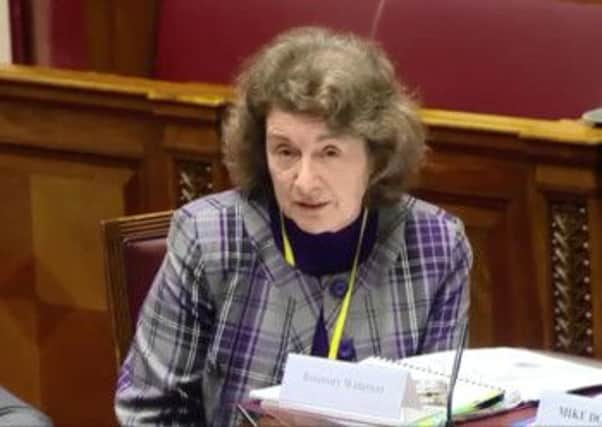Top WELB administration chief doesn’t rule out closing schools


Rosemary Watterson has also warned that if WELB applied Professor George Bain’s standard of having a minimum of 105 pupils in every rural school - a measure still accepted by educational planners - it would have to close 100 out of 175 schools.
She made the comments at a briefing of the Stormont Education Committee within the past fortnight.
Advertisement
Hide AdAdvertisement
Hide AdThe top WELB administrator also told Committee members that whilst it was probably too early to determine if the recent area-based planning approach was resulting in better educational outcomes the advantages or otherwise of rationalisation will likely become clearer within the next three to four years.


Mrs Watterson stated: “Before area-based planning started, we in the Western Board were already looking at primary schools. We had the controlled schools working group, which we have since strengthened.
“That has always been looking at primary schools, and, as a result, a substantial amount of work was already done when area-based planning came along in the controlled sector.
“As a result of that work, we recently closed two schools and amalgamated them into one in the Tyrone area. That is the latest one. We do not have any plans in the present strategic plan to close or rationalise any more primary schools in the Western Board.
Advertisement
Hide AdAdvertisement
Hide Ad“However, as the plans are reviewed, year on year, it may come up that we need to rationalise further, but, at the moment, we are not planning to do so in the controlled sector.”
Referring to the Bain figure of a minimum of 105 pupils at every rural school, she commented: “There are 175 schools in the Western Board, and 100 of those are below the Bain threshold for rural schools of 105.
“We could not close 100 schools. We have to ensure that the schools that are there are fit for purpose. You are quite right: rurality is something that has to be dealt with very sensitively with area-based planning.
“We have a number of schools in the Western Board that are well below the Bain numbers, and they will never close simply because they are far too far away from bigger schools or centres of population, the travelling distances would be too great and so forth.
Advertisement
Hide AdAdvertisement
Hide Ad“We go out and talk to those schools and keep them under review. If they continue to provide fit-for-purpose experience for the youngsters, obviously they will survive.”
Mrs Watterson was amongst several representatives from the local educational boards providing evidence on Primary School Area Planning.
During the evidence session she also pointed out how local schools in Culmore and Ballykelly are leading the way in terms of shared education.
She said: “We are looking at the inquiry into shared education. In the Western Board, a lot more sharing is going on than perhaps we realise.
Advertisement
Hide AdAdvertisement
Hide Ad“When we look at the schools in the Western Board, we see that we have a number of controlled schools that are multi-denominational in places like Ballykelly and Culmore.”
She added: “Those schools have been sharing for years but have remained controlled schools with, obviously, a mixed community inside them. That is really the natural way of doing it.”